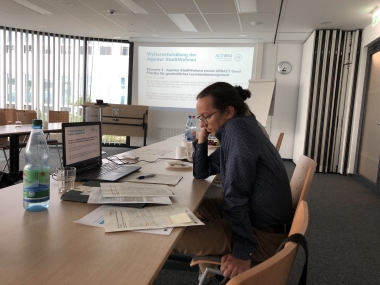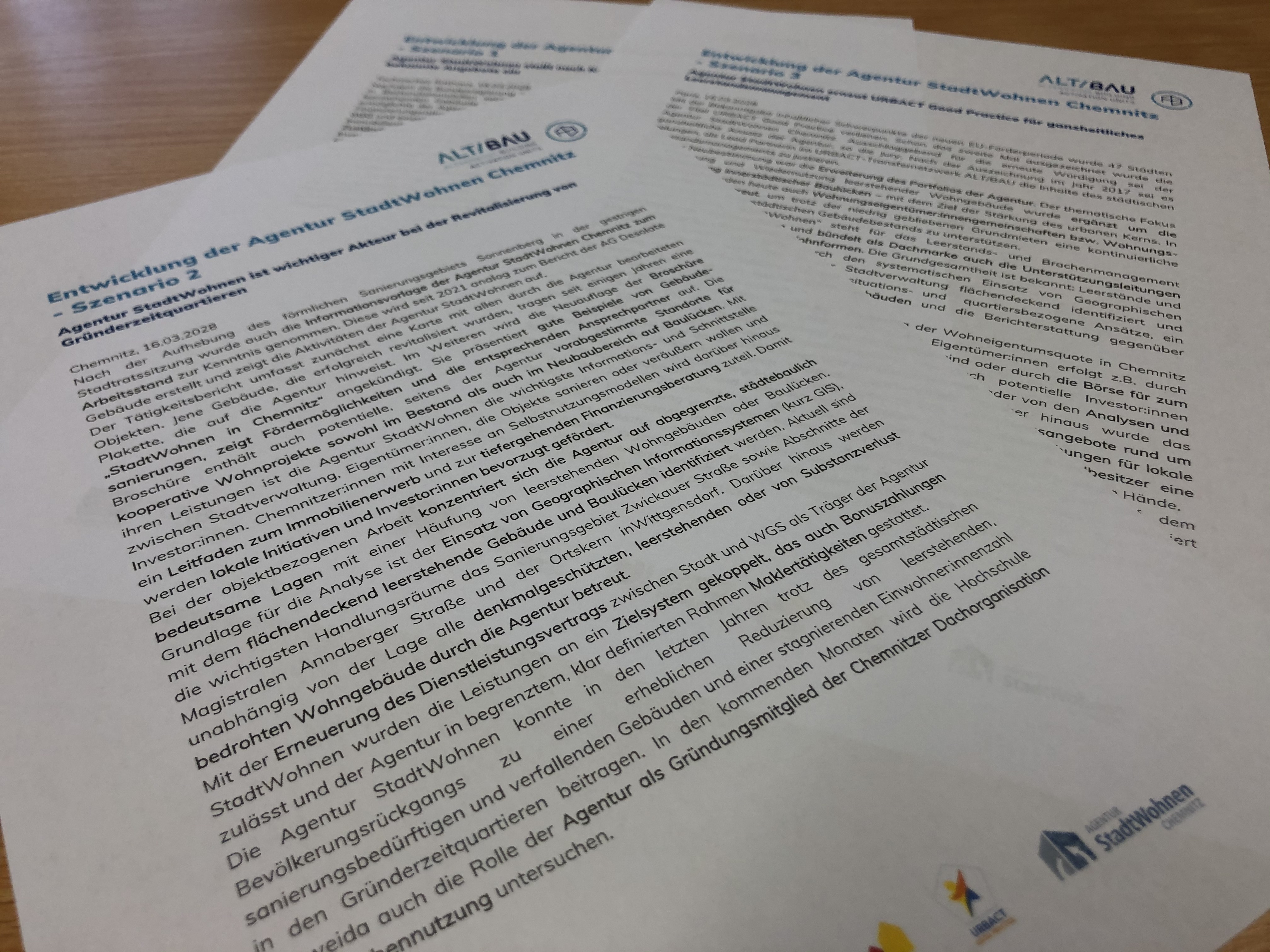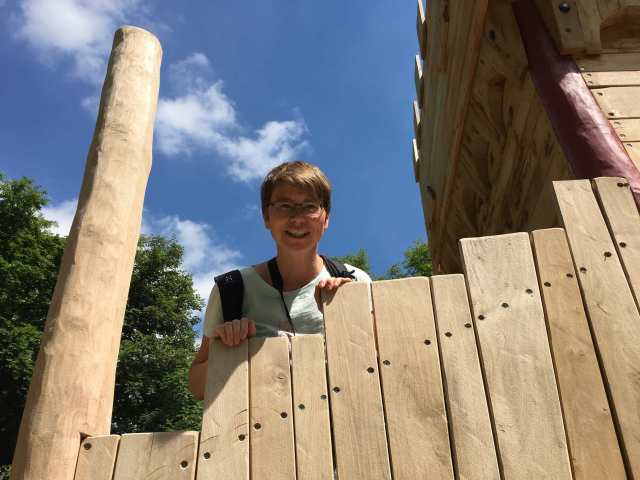Quo vadis, housing agency Chemnitz? Or how the vote on the future profile of the Agentur StadtWohnen Chemnitz is based on scenarios.
Edited on
29 January 2021What do you do as a lead partner with a very well running good practice in an URBACT network? Of course - you transfer your good practice to the partner cities of the network. But what can be the subject of the ULG's work? One of the goals worked out by the Chemnitz' ULG was to further develop the housing agency so that it will continue to be a good practice example in the future. Dr. Frank Feuerbach (ULG Coordinator) reports on how this development process took place.

„Paris, 2028/03/16
With the announcement of priorities of the new EU funding period, 47 cities were awarded the title URBACT Good Practice. This is the second time that the Agentur StadtWohnen Chemnitz has received the award. According to the jury, the holistic approach of the agency was decisive for the renewed honor. After the award in 2017, the agency succeeded as a lead partner in the URBACT transfer network ALT/BAU to adjust its approaches of urban vacancy management. (...) The agency organizes the exchange of many actors, functions as a think tank and is part of the integrated approach of the city administration. Congratulations for the repeated award as URBACT Good Practice!“
Layed on a bit too thick? Too far away from reality? After the evaluation of the Agentur StadtWohnen Chemnitz by the Mittweida University of Applied Sciences, after the presentation of approaches from our six partner cities and after an in-depth workshop on the development of the local real estate market, the simple question how to continue emerged for our ALT/BAU-ULG? What do we want to think about further and which findings or considerations are of secondary importance? In order to bring the many contents together and to revive the discussion in the ALT/BAU-ULG after a long Corona-break, the choice fell on the use of scenarios. The scenario technique as a methodical instrument of strategic planning relies on the formulation of hypothetical images of the future that are contrastingly different from one another.

In total, three challenging scenarios were created, which differ in content from the depth and scope of imaginable changes and adjustments to the agency's services. The proposals depicted in the scenarios originate from a list that documents and summarizes all the wishes, ideas and approaches to action that were articulated and discussed in the past ALT/BAU process. From the comprehensive GIS-survey of vacancies to a campaign „locals invest in their city“ to property visits for potential investors.
The discussion of the three in parts contrasting scenarios in the ULG culminates in the creation of a joint-joint scenario that was supported by all ULG members. The process thus began with scenarios as an instrument for structured discussion. To achieve this, the scenarios focused on the future, as a report on the situation in 2028 and anticipated the adaptation process that lies ahead of the ULG at this point. By using the scenarios, the discussion in the ULG can be described as goal-oriented and less focused on current constraints. The new joint scenario combines the acknowledged results and is the basis for further work. The formulated future images focus on certain fields of action and their further implementation. They ask which work steps are to be derived, which resources are required and who is responsible for their fulfillment.
Just as the ALT/BAU network, which runs until June 2021, has not yet completed its European journey, we as ULG are also still in the middle of our journey. A path that is worth taking.
Dr. Frank Feuerbach, ULG-Coordinator Chemnitz
 Submitted by sabine.hausmann on
Submitted by sabine.hausmann on
